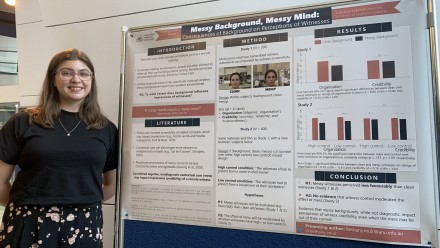Cecil Gibb Research Seminar Series: Collective Nostalgia Content Determines Ingroup Protective Sentiments and Behaviour
Dr. Michael J. A. Wohl is a Professor and Graduate Chair in the Department of Psychology at Carleton University in Ottawa, Canada. He is also the Director of the Conflict Resolution Laboratory (CRL). Members of the CLR focus their research attention on the causes and consequences of harmdoing at both the interpersonal as well as the intergroup level. This research examines, among other things, the emotional reaction that stems from harming or being harmed (e.g., angst, guilt) and their effects on conflict resolution. Ultimately, Wohl’s work is oriented toward the facilitation of forgiveness and the advancement of reconciliation.
Dr. Wohl has published over 140 peer-reviewed papers and is the receipt of Carleton University’s Research Achievement Award, Teaching Excellence Award, and Graduate Mentoring Award. He was recently named a Fellow of the American Psychological Society and the Society for Personality and Social Psychology. To facilitate his research, Wohl has received funding from organization including, Canadian Foundation for Innovation, Social Sciences and Humanities Research Council of Canada, Defense Research and Development Canada, and Ministry of Health and Long-Term Care.
The human mind is a master time traveller with the past often being a place of refuge for people who perceive that a cherished group to which they belong (e.g., national, religious, ethnic) is under existential threat. Put another way, when one’s social group is perceived to be in danger members often find grounding in their group’s treasured past. This can be accomplished psychologically via collective nostalgic reverie (i.e., sentimental longing or wistful reflection for days gone by). In the current talk, I will argue that the content of the collective nostalgia provides a signal that can illuminate the varying (pro- and anti-social) ways group members attempt to protect their group’s future. The significance of this research lies in the perceived loss and change endemic in modernity, which has given rise to populism in Europe and North America—populism that is apt to harness collective nostalgia (e.g., “Make America Great Again”) as a tool to galvanize the electorate against those perceived to be the source of the threat. Critically, the longed-for past may exist only in the minds of those who desire a particular present, yet these rose-tinted evocations are easily used (often by politicians) to generate support for a particular political agenda. Discussion will focus on the need for researchers and policy makers to understand that the content of collective nostalgia (and group-based emotions in general) matters as well as the particular socio-political dynamics that generate the content this group-based emotion.











